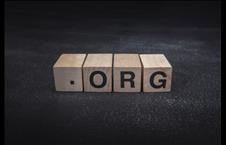|
|
Comerford & Dougherty, LLP Blog
Monday, April 25, 2016

Automobile deductions: Whether an individual uses a personal vehicle for his or her own business or company owns a vehicle, the depreciation of value and costs associated with that vehicle may be deducted from the company’s income at year's end. A taxpayer must keep track of all of these expenses and document them by maintaining receipts and records of expenditures in order to claim the deduction. Alternatively, a business may declare standard deductions for the vehicle based on the mileage of the vehicle. In 2015, this standard deduction is 57.5 cents for every business mile driven. If a vehicle is driven for both business and personal use, the IRS will require a taxpayer to identify the percentage of use dedicated to business.
Capital expenses: Also called startup costs, the IRS allows a business to deduct up to $5,000from its income in its first year of expenses for expenditures made before the doors of the business opened. Any capital expenses remaining after the first $5,000may be deducted in equal increments over the next 15 years.
Legal and professional fees: Fees paid to professionals like lawyers, accountants, and consultants, may be deducted from a company’s income each year. If the benefit of a professional’s advice is spread out over a number of years, the tax deduction must also be spread equally over the same period. The cost of books or tuition for classes to help avoid legal or professional costs may also be deducted.
Bad debt: A business may deduct the losses suffered as a result of a customer who fails to make payment for goods sold. However, a business that deals in providing a service may not deduct the time devoted to a client or customer who does not pay. A service business may deduct expenses made in an attempt to help that customer or client.
Business entertaining:The cost of meals or entertainment purchased for business purposes must be documented by receipts in order to maintain the right to deduct the cost from income for tax purposes. Only 50percent of the total cost of entertainment expenses may be deducted.
Interest: If a business operates on a business loan or a line of credit, the interest on that loan may be deducted from income for tax purposes.
Normal business expenses: The cost of advertising, new equipment, depreciation of existing equipment, moving expenses, business cards, office supplies, travel expenses, coffee and beverages, software, casualty and theft losses, postage, business association dues, and all other business expenses can be deducted.
Monday, April 18, 2016

In this computer age, when so many tasks are accomplished via the internet -- including banking, shopping, and important business communications -- it may seem logical to turn to the internet when creating a legal document such as a will . Certainly, there are several websites advertising how easy and inexpensive it is to do this. Nonetheless, most of us know that, while the internet can be a wonderful tool, it also contains a tremendous amount of erroneous, misleading, and even dangerous information.
In most cases, as with so many do-it-yourself projects, creating a will most often ends up being a more efficient, less expensive process if you engage the services of a qualified attorney. Just as most of us are not equipped to do our own plumbing repairs or automotive repairs, most of us do not have the background or experience to create our own legal documents, even with the help of written directions.
Situations that Require an Attorney for Will Creation
In certain cases, the need for an estate planning attorney is inarguable. These include situations in which:
- Your estate is large enough to make estate planning guidance necessary
- You want to disinherit your legal spouse
- You have concerns that someone may contest your will
- You worry that someone will claim your mind wasn't sound at the signing
Mistakes and Omissions
It has always been possible to write a will all by yourself, even before the advent of the typewriter, let alone the computer. Such a document, however, is unlikely to deal with the complexities of modern life. Many estate planning attorneys have seen, and often been asked to repair, wills that have mistakes or significant omissions. These experts have also become aware of situations in which the survivors of the deceased wind up in court, spending thousands of dollars to contest ambiguously worded or incomplete wills. Without legal guidance from a competent estate planning attorney, creating a "boxtop" will can result in tremendous financial and emotional risk.
Evidence that Online Wills Are Not Foolproof
Evidence that many other complications can arise when an individual creates a will using generalized online directions can be found in the following facts:
- Each state has its own rules (e.g. requiring differing numbers of disinterested party signatures)
- Even uncontested wills can remain in probate if not executed in an exacting fashion
- Estate planning attorneys find legal software programs inadequate
- Even legal websites themselves recommend bringing in an attorney in all but the very simplest cases
- Some legal websites provide inexpensive monthly legal consultations with attorneys to protect their client and themselves
Areas that Frequently Cause Problems
Self-constructed wills often become problematic when the testator:
- Names an executor who has no financial or legal knowledge
- Leaves a bequest to a pet (legally, you must leave the bequest to an appointed caretaker)
- Puts conditions on payouts to an that are difficult, or impossible, to enforce
- Makes unusual end-of-life decisions or puts living will information into the will
- Designates guardians for children, but neglects to name successor guardians
- Neglects to coordinate beneficiary designations where, for example, the will and insurance policy designations contradict one another
- Leaves funeral instructions into the will since the document will most likely not be read until after the funeral has taken place
- Leaves inexact or ambiguous instructions dealing with blended families
- Neglects to mention small items in the will which, though of small financial value, are meaningful to loved ones and may cause contention
In order to ensure that you leave your assets in the hands of those you wish, and to avoid leaving your loved ones with bitter disputes and expensive probate costs, it is always wise to consult with an experienced estate planning attorney when making a will. In this area, as in so many others, it is best, and safest, to make use of those with expertise in the field.
Monday, April 11, 2016
 A 501(c)(3) nonprofit is one of a class of 29 different types of tax-exempt, nonprofit organizations under section 501(c) of the tax code. Most charitable organizations that receive donations from individuals in the United States are organized as 501(c)(3) nonprofits. The 501(c)(3) status is the most coveted type of nonprofit status because donations to these organizations can be deducted from income for tax purposes by the donors. This makes fundraising significantly easier.
501(c)(3) tax exemptions are reserved for businesses that operate for religious, scientific, literary, charitable, or educational purposes. They are also permitted when the organization provides services to test products for public safety, aims to prevent cruelty against children and animals, or fosters national or international amateur sporting competitions. A group trying to convince an American city to host the Olympics can be a 501(c)(3) even if it is not a charity in the traditional sense. In order to qualify as a religious organization, a church must comply with the rules outlined in IRS publication 1828 or risk losing its tax exempt status. All 501(c)(3) organizations are prohibited from engaging in supporting political candidates, and there are hard limits to the amount of lobbying a charitable organization may make to influence legislation.
To qualify as a 501c)(3), an organization must include in its articles of incorporation or bylaws restrictions on its power to operate for profit. Without this restriction, the organization’s tax exempt status will be denied, both by the Internal Revenue Service and by the state government. A 501(c)(3) company must receive a substantial portion of its funding by soliciting donations from the general public or government grants. If the organization raises most of its money by selling products or providing services, it cannot operate as a 501(c)(3), even if all the money raised is used for charitable purposes, though for small fundraisers, like carwashes or bake sales, exceptions may be permitted. An organization that receives significant income from private donations and government grants is called a public charity. Another type of 501(c)(3) is a private foundation, which is also tax exempt, and which may also receive tax-deductible donations. Private foundations, however, earn the bulk of their money through investments and endowments. This money is then donated to other charitable organizations.
Monday, March 28, 2016

The role of an executor is to effectuate a deceased person’s wishes as declared in a will after he or she has passed on. The executor’s responsibilities include the distribution of assets according to the will, the maintenance of assets until the will is settled, and the paying of estate bills and debts. An old joke says that you should choose an enemy to perform the task because it is such a thankless job, even though the executor may take a percentage of the estate’s assets as a fee. The following issues should be considered when choosing an executor for one's estate.
Competency: The executor of an estate will be going through financial and legal documents and transferring documents from the testator to the beneficiaries. If there are legal proceedings, the executor must make all necessary court appearances. There is no requirement that a testator have any financial or legal training, but familiarity with these areas does avoid the intimidation felt by lay people, and potentially saves money on professional fees.
Trustworthiness: The signature of an executor is equivalent to that of the testator of an estate. The executor has full control over all of an estate’s assets. He or she will be required to go through all of the papers of the deceased to confirm what assets are available to be distributed. The temptation to transfer assets into the executor's own name always exists, particularly when there is a large estate. It is important to choose a person with integrity who will resist this temptation. It makes sense to utilize an individual who is an heir to fill the role to alleviate this concern.
Availability: The work of collecting rents, maintaining property, and paying debts can take more than a few hours a week. Selecting an executor with significant obligations to work or family may cause problems if he or she does not have the time available to devote to the task. If an executor must travel great distances to address issues that arise, there will be more of a time commitment necessary, not to mention greater expenses for the estate.
Family dynamics: Selection of the wrong person to act as executor can create resentment and hostility among an estate’s heirs. A testator should be aware of how family members interact with one another and avoid picking someone who may provoke conflict. Even the perception of impropriety can lead to a lawsuit, which will serve to take money out of the estate’s coffers and delay the legitimate distribution of the estate.
Monday, March 21, 2016


Not every small business needs to form an LLC in order to function. A child selling lemonade by the side of the road has no use for a Tax ID number. It doesn’t seem practical to set up a new business entity to host a garage sale or a Tupperware party. As a venture starts to grow from a hobby to a full-time job, however, there are questions every business owner should ask to determine whether it is best to incorporate the business into a legal entity.
Do I need to protect my personal assets?
The greater the risk of being sued, the more necessary it becomes to file the necessary paperwork to form a Limited Liability company. This will limit the owner’s financial liability to the assets invested in the business. This means that, if a business gets sued, the business owner’s personal assets, like his or her home, automobile, personal bank accounts, and belongings, may not be targeted by the lawsuit. Common lawsuits of concern are for the satisfaction of contracts and leases and personal injury claims for accidents on the premises. Similarly, a bank may not seek a business owner’s assets to repay a loan unless the business owner signs a personal guarantee. Banks often require such a guarantee for new businesses that have no credit history.
Do I need flexibility in my obligation to pay income taxes?
A C corporation, which is a type of Limited Liability Company, has the flexibility to shift the business’s tax burden from one year to another. Normal business expenses and salaries can be deducted from a business’s taxes that may ultimately reduce a business owner’s tax burden depending on the income he or she derives from the business and from other sources.
Do I need to protect my company name?
In most states, companies register their names with the state to ensure that only one business can operate under that name. This is important for branding and marketing purposes. Adding LLC to the end of a company’s name can also add legitimacy to a new business, thus enhancing the brand.
Do I want to sell all or part of the business?
Ownership of an LLC or corporation can be shifted easily compared to those of a sole proprietorship. Adding partners and selling the business can be difficult if there are no lines between where the business ends and the owner begins. Once a business is incorporated, it lasts until it is dissolved, meaning it continues to be an asset for a business owner’s estate after the individual passes on.
Monday, March 14, 2016

A tax basis is essentially the purchase price of a piece of property. Whenever that property is sold, the seller must pay taxes on the difference between the sale price and the original purchase price. This concept applies to all property, including stocks, bonds, vehicles, mechanical equipment, and real estate. If debts are assumed along with the purchase price, the principal amount of the debt will be included in the basis. The basis can be adjusted downwards when a person deducts depreciation costs on his or her income tax returns, and may be increased for capital investments towards improving the property that are not deducted for income tax purposes. Selling a property that has been held for a long time can carry a serious tax burden because of inflation, particularly when real estate prices have increased.
When an individual receives property as an inheritance, the tax basis is reset to whatever the fair market value is at the time of the transfer of title. This means that the heir would pay significantly less taxes if that property is sold by the beneficiary than if the original owner were to sell it and devise the money to his beneficiaries. Most simple wills provide that all of a testator’s assets are placed into a residual estate to be divided equally among the heirs. This means that an executor must liquidate the assets of the estate and divide the proceeds among the heirs. However, because there is no transfer of title before the property is sold, the heirs are stuck with the grantor’s basis and they lose an opportunity for a sizeable tax break.
A person planning his or her estate may also reset the basis in his or her property by giving it as a gift directly to his or her heirs or by gifting the property to an inter vivos trust. These actions can have their own tax related consequences, or create other unintended problems for the beneficiaries. Only an experienced estate planning attorney can advise you on the most efficient way to pass your assets on to your heirs.
Monday, February 22, 2016
 When a loved one dies, an already difficult experience can be made much more stressful if that loved one held a significant amount of debt. Fortunately, the law addresses how an individual’s debts can be paid after he or she is deceased.
When a person dies, his or her assets are gathered into an estate. Some assets are not included in this process. Assets owned jointly between the deceased and another person pass directly to the other person automatically. If there are liens on the property at that time, they will stay on the property, but no new liens can be placed on the property for debts in the name of the deceased. Similarly, debt jointly in the name of the deceased and another party may continue to be collected from the other party. In community property states, all assets and debts are the joint property of both spouses and pass automatically from one to the other. The community property states are Alaska, Arizona, California, Idaho, Louisiana, Nevada, New Mexico, Texas, Washington, and Wisconsin.
From the pool of assets in the estate, an executor is required to pay all just debts. This means that, before a beneficiary may receive anything, all debts must be satisfied. Property might be sold to create liquidity in order to accomplish this. If there are more debts than there are assets, the estate must sell of as many assets as possible to pay off the creditors. If there is no money in the estate, the creditor can not collect anything. Rather than force people into this tiresome process, many creditors will agree to discharge a debt upon receipt of a copy of a death certificate or obituary. This is particularly true of small, unsecured debts. Life insurance proceeds were never owned by the decedent and should pass to a beneficiary without consequence to the estate. Proceeds of a retirement account may also be exempt from debts.
If creditors continue harassing the beneficiaries of debtors, they may be violating federal regulations under the FDCPA. They can be held accountable by their actions, either by the FTC, the state attorney general, or a private consumer law attorney.
Monday, February 15, 2016

While the terms "estate tax" and "inheritance tax" are often used interchangeably, they are not synonymous. Let's try to clarify the difference.
Estate Tax
Estate tax is based on the net value of the deceased owner's property. An estate tax is applied to these assets when they are transferred to the beneficiary. It is important to remember that an estate tax doesn't have anything to do with the beneficiary or that person's resources.
Federal estate tax only affects individuals who die with more than $5.45[s1] million in assets and individuals with such large estates can leave that amount to their beneficiaries without being subjected to a tax liability. Ninety-nine percent of the population will not owe federal estate tax upon their death.
In most circumstances, no federal estate tax is levied against spouses. As of the Supreme Court's recent ruling, this includes gay married couples as well as heterosexual couples. Federal estate taxes can, however, be charged if the spouse who is the beneficiary is not a citizen of the U.S. In such cases, though, a personal estate tax exemption can be used. Even where remaining spouses have no liability for federal estate tax, they may be charged with state taxes in some states, taxes which cannot be avoided unless the couple relocates.
Inheritance Tax
Inheritance tax, as distinguished from estate tax, is imposed by state governments and the tax rate depends on the person receiving the property, and, in some locations, on how much that person receives. Inheritance tax can also vary depending upon the relationship between the testator and the benefactor. In Pennsylvania, for example, a spouse is not taxed at all; a lineal descendant (the child of the deceased) is taxed at 4.5 percent; a sibling is taxed at 12 percent, and anyone else must pay 15 percent.
Exemptions
There are exemptions that can reduce the amount of inheritance tax owed by significant amounts, but it is important that there be proper documentation of such exemptions for them to be applicable. Any part of the inheritance that is donated to charity does not require inheritance tax payment on the part of the beneficiary. Because of the inherent complexities of tax law and the variations from state to state, working with a tax attorney who has expertise with state tax laws s the best way to make sure you take advantage of any possible tax exemptions or avoidance.
Tuesday, February 9, 2016

The law allows a person preparing a will to have almost complete control over his or her assets after the testator passes on, but there are limits to such power. A person can restrict a property from being sold, or make sure that it is used for a specific purpose. A property can be bequeathed to a family member as long on condition that the person maintains the family business in a specific city, or exercises daily, or places flowers on the deceased's grave every week, or engages in any other behavior the testator desires. This freedom, however, is not without limits. The time limit on this ability is called the rule against perpetuities. The rule is also referred to as the “dead man’s hand” statute.
The rule against perpetuities is complex and rarely utilized. At the time of the passing of the testator, the heirs of the estate are locked in. These heirs are referred to as “lives in being.” For the purposes of this rule, if a child is conceived but not yet born at the time of the testator’s death, it will be considered a life in being. Once the last living heir named in the will passes away, the restrictions on the property will continue in place as the testator desired for 21 years. The idea is that a testator may control his assets for a full generation after his or her death. The rule is notoriously difficult to apply properly. When it does apply, the conditions on the bequest are abandoned and the gift returns to the residual estate.
What makes this rule so confusing is that, when an individual writes a will, he or she may make gifts to potential children or grandchildren. These children and grandchildren, however, may not be born until years later. If a child has been born at the time the decedent passes away, he or she is subject to the restrictions on the bequest during his or her lifetime. If a grandchild is conceived and born after the decedent’s death, however, the child may avoid the restrictions 21 years after the death of the last heir alive at the time of the decedent’s death. There is no way to predict when this might occur. The rule is archaic and easily avoided. A knowledgeable attorney can help a person planning his or her estate set up an equitable trust. Similar to a will, a trust may impose conditions on the use of assets, but is not subject to the rule against perpetuities. There are other advantages to a trust, but one of the most important is avoiding this unpredictable and confusing rule.
Monday, January 18, 2016

There are certain considerations that should be kept in mind for those with chronic illnesses. Before addressing this issue, there should be some clarification as to the definition of "chronically ill." There are at least two definitions of chronically ill. The first is likely the most common meaning, which is an illness that a person may live with for many years. Diseases such as diabetes, cardiovascular disease, lupus, multiple sclerosis, hepatitis C and asthma are some of the more familiar chronic illnesses. Contrast that with a legal definition of chronic illness which usually means that the person is unable to perform at least two activities of daily living such as eating, toileting, transferring, bathing and dressing, or requires considerable supervision to protect from crisis relating to health and safety due to severe impairment concerning mind, or having a level of disability similar to that determined by the Social Security Administration for disability benefits. Having said all of that, the estate planning such a person may undertake will likely be similar to that of a healthy person, but there will likely be a higher sense of urgency and it will be much more "real" and less "hypothetical."
Most healthy individuals view the estate planning they establish as not having any applicability for years, perhaps even decades. Whereas a chronically ill person more acutely appreciates that the planning he or she does will have real consequences in his or her life and the life of loved ones. Some of the most important planning will center around who the person appoints as his or her health care decision maker and also who is appointed to handle financial affairs. a will and/or revocable living trust will play a central role in the person's planning as well. Care should also be taken to address possible Medicaid planning benefits. A consultation with an estate planning and elder law attorney is critical to ensuring all necessary planning steps are contemplated and eventually implemented.
Monday, January 11, 2016
 Will - a written document specifying a person’s wishes concerning his or her property distribution upon his or her death. Will - a written document specifying a person’s wishes concerning his or her property distribution upon his or her death.
In order to be enforced by a court of law, a will must be signed in accordance with the applicable wills act.
Testator/Testatrix - the person who signs the will.
Heirs - beneficiaries of an estate.
Executor/Executrix - the individual given authority by the testator to make decisions to put the testator’s written directions into effect.
Once the will is entered into probate, the executor’s signature is equivalent to the testator’s. The executor has a legal duty to the heirs of the estate to act in the best interest of the estate, and may collect a fee for performing such service.
Administrator/Administratrix - the person who assumes the role of the executor when a person dies without a will (intestate).
The Administrator must apply with the local probate office and may be required to provide a bond to be held in escrow as collateral for control over the assets of the estate.
Codicil - an amendment to a will.
In order to be valid, a codicil must comply with all the requirements of the applicable wills act.
Holographic Will- a handwritten will.
Holographic wills are often exempt from requirements of the applicable wills act.
Bequest - a gift given by the testator to his or her heirs through a will.
Residual Estate - the balance of a testator’s belongings after debts have been paid and specific bequests have been distributed.
Intestate - not having signed a will before one dies; a person who dies without having signed a will.
Life Estate - a bequest that gives an heir the right to have exclusive use of a property for the remainder of his or her life, but without the power to transfer such property upon the death of that heir.
The property will transfer to the heirs of the residual estate after the death of the beneficiary of the life estate.
Per stirpes - a Latin phrase precisely translated as “by the branch” meaning that, if an heir named in the will dies before the testator, that heir’s share will be divided equally among that beneficiary’s own heirs.
An alternative to per capita, described below.
Per capita - a Latin phrase precisely translated as “by the head” meaning that, if an heir named in the will dies before the testator, that heir’s share will be divided among the testator’s remaining heirs.
An alternative to per stirpes, described above.
While it is a good idea to have a basic understanding of fundamental estate planning vocabulary, this cannot serve as a substitute for the services of an experienced attorney.
|
|
|
|